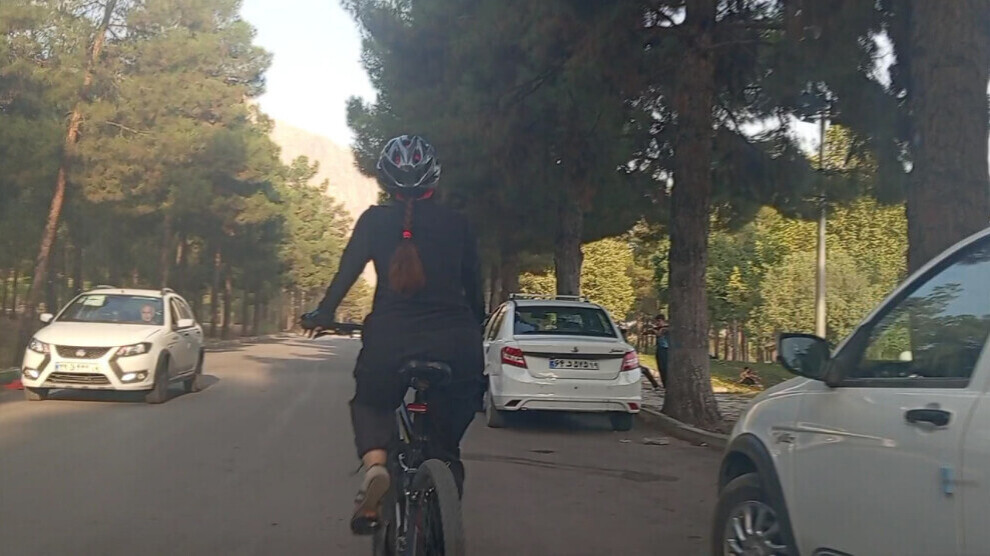Riding for freedom: Iranian women resist restrictions
In a country where women’s simplest rights are restricted, bicycles and motorcycles have become a symbolic battlefield—a struggle between women seeking freedom and authorities enforcing laws and fatwas to suppress them.

NASIM AHMADI
Kermanshah - In Iran, the word “woman” often carries only one meaning in society: “forbidden.” In male-dominated systems where men dictate laws and women’s daily lives, women are denied even basic rights, simply because men decide what is appropriate and assign them limited roles.
Wheels of sin and freedom
Among the many activities banned for women over the years, riding bicycles and motorcycles remains one of the most controversial. State media insist there is no law prohibiting women from riding, attributing restrictions to societal norms.
Yet, the reality is clear: the refusal to issue motorcycle licenses for women is a direct demonstration of official opposition. Even without explicit legal prohibitions, denying licenses effectively enforces the ban. Fatwas issued by religious authorities further highlight the significance placed on preventing women from riding. Ayatollah Sobhani Tabrizi stated explicitly: “Women riding bicycles may pave the way for immorality in society.”
The claim that women spread corruption applies even though riding as a passenger behind a man is not prohibited. The issue arises only when women ride independently.
Driving between shame and right
(Ilh. M.) who rides disguised as a man, said: “Our struggle begins at birth. Everything we want to do faces obstacles imposed by men. Worldwide, cycling is encouraged for health and environmental benefits, but in Iran, patriarchal norms forbid women from exercising this independence.”
Longstanding beliefs that women lack control over their actions have led to accidents being blamed on them. While car licenses were never legally prohibited, the perception that driving is “shameful” for women kept female drivers rare until the last decade. Fear of driving alone was pervasive.
Hojatoleslam Sekhavatian, a seminary professor, said: “Some narrations about the End Times claim that a woman driving leads to immorality. Studying these, driving iron vehicles—cars and motorcycles—has been cited as a sign of the End Times, which cannot be ignored.”
Authority’s double standards
The Iranian government has used religious beliefs to reinforce patriarchal control, intensifying pressure to prevent women from riding or driving. When scholars cite women riding as a sign of moral decay, it highlights how threatening female independence is to male-dominated authorities, which use all means to suppress it.
However, authorities do not oppose women riding if it serves state interests. In 2004, a campaign promoted Bappa Mahdavi Nader, the first Iranian woman attempting a global motorcycle journey. Officials praised her veiling, showing that women riding is acceptable when it aligns with state objectives.
Patriarchal fear and resistance
Repression has created fear among women of riding alone, but in recent years, thanks to women challenging prohibitive fatwas, streets have become a battleground between desire and restrictions. Women have begun riding bicycles and motorcycles openly, transforming these activities into symbols of resistance.
Statistics reveal the truth
In recent years, the number of women riding motorcycles has increased, forcing officials to acknowledge the change. In October, Mehdi Ghomesrian, CEO of the Personal Damage Insurance Fund, reported that from 2006 to 2024, approximately 135 billion tomans were paid in compensation for motorcycle accidents involving female passengers without insurance.
Motorcycles as symbols of women’s resistance
By withholding licenses and insurance, the government tries to deny the presence of female riders. Yet women have turned motorcycles and bicycles into emblems of defiance, showing that laws, fatwas, and patriarchal control cannot stop their struggle. These obstacles have only strengthened their determination, keeping their banners of resistance raised as they push toward freedom and independence.
